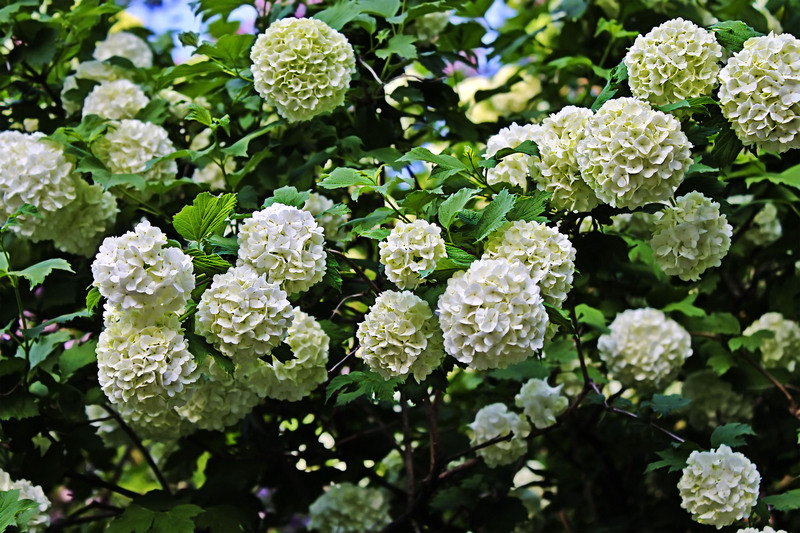3 Tips to Transform Unruly Weeds into Manageable Pests
Posted on 27/05/2025
3 Tips to Transform Unruly Weeds into Manageable Pests
Unruly weeds can turn your garden from a blossoming sanctuary into a chaotic mess. If you're tired of pulling weeds and watching them spring back stronger than ever, it's time to change your approach. Instead of treating garden weeds as overwhelming invaders, you can turn them into manageable pests with a combination of smart strategies and sustainable techniques. In this comprehensive guide, you'll discover three effective tips to help you reclaim your landscape, maintain a healthy garden, and get those pests under control--once and for all.
Understanding Unruly Weeds: Why Weeds Thrive in Your Garden
Before you battle back, it's essential to understand why weeds seem to thrive no matter what you do. Weeds are opportunistic plants that excel in disturbed soil, poor fertility, and areas lacking competition. Common garden weeds such as dandelions, crabgrass, and bindweed are not only hardy; they are also highly adaptive to various conditions.
- Rapid growth: Weeds often grow faster than cultivated plants, quickly outcompeting them for sunlight, water, and nutrients.
- High adaptability: Many weed species can tolerate a wide range of environments. Some even alter their growth habits in response to control efforts.
- Resilient reproduction: Most weeds disperse seeds widely and persistently, enabling them to return year after year.
Without effective management, weeds can overshadow your plants, decrease yields, and ruin the garden's aesthetics. But, with the right approach, weeds can shift from unmanageable nuisances to manageable pests--and you can enjoy a more productive, beautiful landscape.

Tip 1: Use Preventive Mulching to Suppress and Manage Weeds
Mulching isn't just a method for conserving moisture and moderating soil temperature--it's one of the best defenses against persistent weeds. By applying a layer of mulch to your garden beds, you effectively starve weeds of the light they need to germinate and grow. Here's how you can transform weeding from a constant battle into a minimal chore:
Choosing the Right Type of Mulch
- Organic mulches (bark, straw, compost, wood chips) offer nutrients as they decompose, promoting soil health.
- Inorganic mulches (landscape fabric, gravel) offer longer-lasting weed control but don't contribute to soil fertility.
For most gardens, a combination of organic and inorganic mulches delivers the best results. Organic mulches work well in vegetable and flower beds, while weed barrier fabrics are great for perennial borders and paths.
Application Method: Mulching for Maximum Weed Control
- Clear existing weeds from the area before applying the mulch. This prevents old weeds from growing through.
- Lay down a 2-4 inch thick layer of mulch, ensuring even coverage but keeping mulch away from plant stems to avoid rot.
- For stubborn or particularly invasive weeds, consider laying cardboard or newspaper underneath the mulch as an extra barrier.
This method denies light to weed seeds and inhibits their growth. Over time, you'll notice you have fewer weeds to pull, transforming once unrelenting infestations into manageable pest populations.
Tip 2: Adopt Smart Planting Techniques to Crowd Out Weeds
One of the most efficient weed management strategies is to crowd out weeds with robust, closely spaced plantings. By maximizing the use of your garden's space with dense, healthy plants, you leave little room and few resources for weeds to invade. This approach leverages the principle of 'competitive exclusion'--where strong plants outcompete weaker weeds for sunlight, moisture, and nutrients.
Dense Planting: Outcompete Unwanted Garden Weeds
- Choose vigorous groundcovers and low-growing plants to blanket bare soil. Options like thyme, clover, or ajuga form thick mats that suppress weed growth.
- Use intensive planting techniques in vegetable beds, such as square-foot gardening, which minimizes unused soil surface.
- Interplant fast-growing and slow-growing crops to help shade out weeds early in the season.
Dense, layered plantings naturally reduce weed pressure. When light and space are occupied by cultivated plants, weed seeds have a much harder time establishing themselves.
Companion Planting: Strategic Plant Choices
- Pair shade-loving plants with taller companions to fill in underutilized soil, thus further inhibiting weeds.
- Incorporate nitrogen-fixing plants such as beans or peas to improve soil fertility, making it harder for weeds to exploit depleted soils.
- Rotate crops each season to destabilize weed life cycles and reduce the prevalence of persistent species.
With these methods, you'll not only transform unruly weeds into manageable pests, but you'll also maximize garden productivity and create a more vibrant, biodiverse landscape.
Tip 3: Precision Targeting and Persistent Effort for Lasting Control
No matter how diligent you are, some weeds will always reappear. The key is to target weeds precisely and consistently before they return to full strength or reproduce. By integrating manual, mechanical, and organic methods, you can maintain weeds at a manageable level--and even turn them to your advantage.
Hand Pulling and Digging: Timing is Everything
Hand weeding remains one of the most effective and eco-friendly ways to manage persistent weeds. The trick is to:
- Remove weeds while they're young and before they seed. Early removal depletes the seed bank and reduces future outbreaks.
- Use weeding tools, such as hoes and diggers, to reach deep-rooted species and ensure full extraction of roots.
- Pull after rain, when soil is moist, for easier removal and less disturbance to surrounding plants.
Routine inspection and timely action are vital in transforming unruly garden invaders into manageable pests.
Utilizing Organic Herbicides and Natural Solutions
While chemicals can be effective, organic solutions are safer for pets, wildlife, and your soil ecosystem. Consider:
- Spraying a targeted homemade vinegar solution onto young weeds during dry, sunny weather.
- Boiling water poured directly on hard-to-kill weeds in driveways or patio cracks.
- Using commercial organic herbicides derived from natural ingredients such as clove oil, citric acid, or pelargonic acid.
Consistency is crucial--most organic methods may require multiple applications but are excellent at reducing unruly weed populations to small, manageable nuisances.
Keep Accurate Records and Monitor Problem Areas
- Track problematic weeds via a simple garden journal. Document where and when outbreaks occur to anticipate and prevent future invasions.
- Identify and learn about species that return frequently -- adjust your strategy depending on the weed's biology (annual, perennial, invasive, etc.).
- Reward your persistence: Celebrate small victories and note effective techniques for future use!
Persistence, routine, and strategy transform garden chaos into easy-to-handle pest management--and over a season or two, your problems may be all but eradicated.

Other Strategies to Transform Weed Problems into Garden Strengths
Dealing with weeds isn't only about control--it's also about integration and prevention. Here are some bonus approaches to make weeds work for you:
- Composting Weeds: Many non-invasive weeds can be composted if they haven't gone to seed. Add them to your pile for extra green matter and nutrients.
- Cultivating Edible Weeds: Plants like purslane, chickweed, and dandelion are not only easy to manage but also edible and nutritious! Harvest, don't curse, these uninvited guests.
- Create wildlife habitats: Unmown or less controlled areas provide shelter for beneficial insects and pollinators, turning weeds into allies for broader ecosystem health.
This approach recognizes that transforming unruly weeds into manageable pests doesn't only mean fewer weeds--it can also mean a healthier, more resilient garden overall.
Conclusion: Turn Unruly Weeds into Manageable Pests and Enjoy a Healthier Garden
Unruly weeds don't have to be the bane of your gardening existence. By understanding how weeds thrive, embracing preventive mulching, crowding out weeds with smart planting, and practicing consistent, targeted removal, you can transform weed problems into manageable pest issues--and even into assets for your garden ecosystem.
Apply these three comprehensive tips to control and manage weeds in your garden. With the right mindset and proactive strategies, you'll spend less time fighting weeds and more time enjoying the flourishing results of your efforts. Take back your garden today--start turning those wild weed infestations into *manageable pests* and reclaim your beautiful landscape!
Quick Summary: 3 Tips At a Glance
- Mulch defensively: Block sunlight and prevent germination.
- Plant densely: Outcompete weeds for resources.
- Be persistent and precise: Remove and monitor weeds consistently.
With these strategies, you're not just controlling weeds--you're cultivating a garden that's sustainable, healthy, and a joy to tend. Transform unruly weeds into manageable pests today!
Latest Posts
How to Shield Your Garden from Weather-Related Damages
Innovative Concepts for Cozy Garden Seating Arrangements
Transform Walls into Gardens with Vertical Gardening

